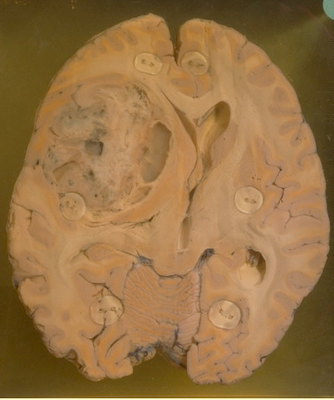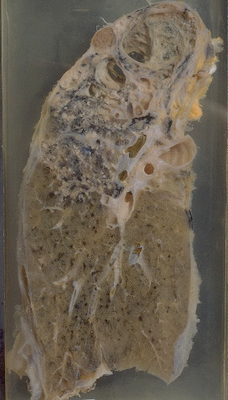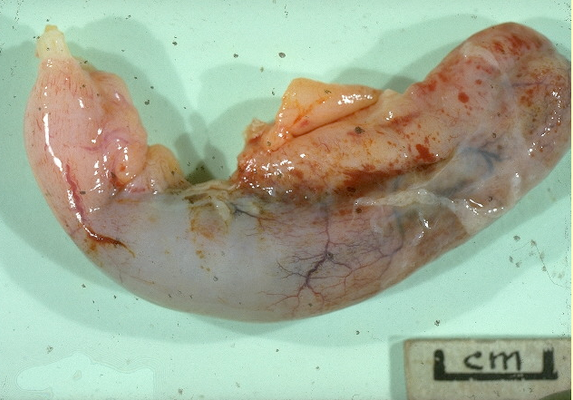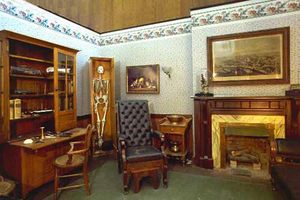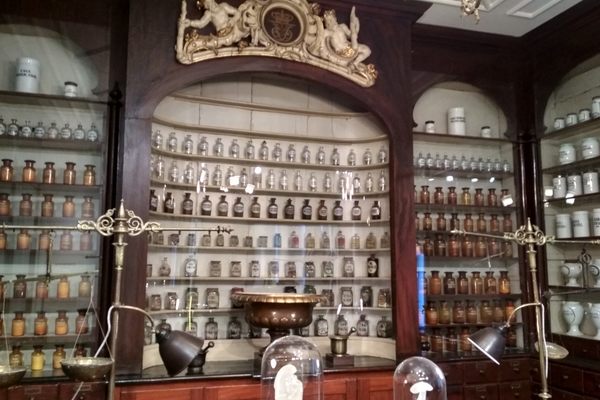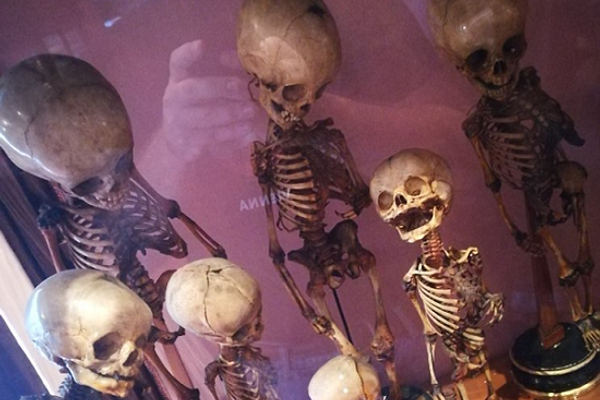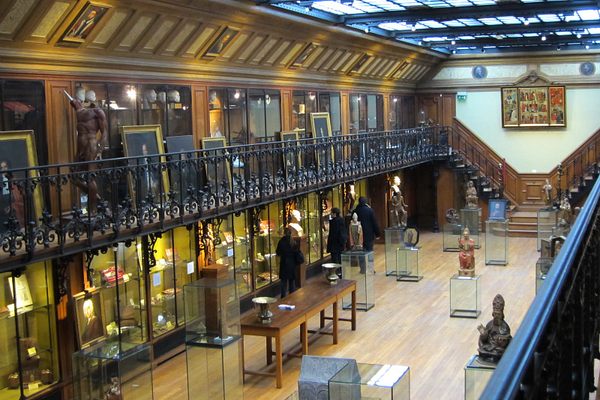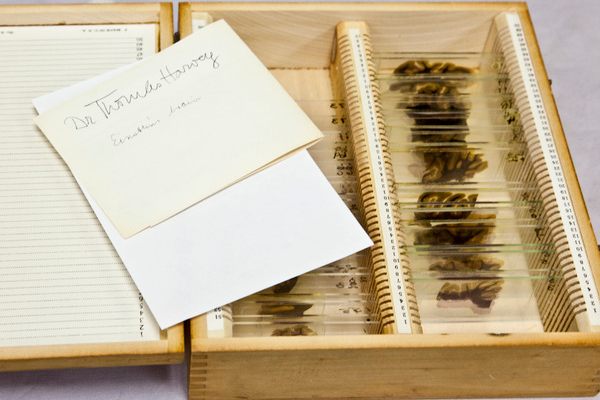About
The Museum of Human Disease contains over 2,500 specimens (also known as "pots"), which display diseased human tissue preserved in formalin. Specimens are obtained both from organs removed surgically and from tissue obtained at the autopsies of those who have donated their bodies to science.
Among the many jars of wet specimens in the museum are displays of parasites such as a tapeworm and roundworms, the blackened lungs of smokers and coal miners, and a benign teratoma of an ovary, which has teeth and hair growing from it. Each jar represents a specific human disease or pathology. The director notes that "there is great suffering in every single jar." Some specimens are over 60 years old and have become quite rare--diphtheria, for example--and are now thankfully, "irreplaceable."
The museum which was once only open to medical students and pathologists is now open to the public with the hopes that it may help change behavior in its visitors. "I suppose that's the reality that people need to understand: that their lifestyle and their decisions do have consequences even if they don't notice them for some years," said the museum director.
Obscura Day location: April 9, 2011.
Related Tags
Published
April 3, 2011
